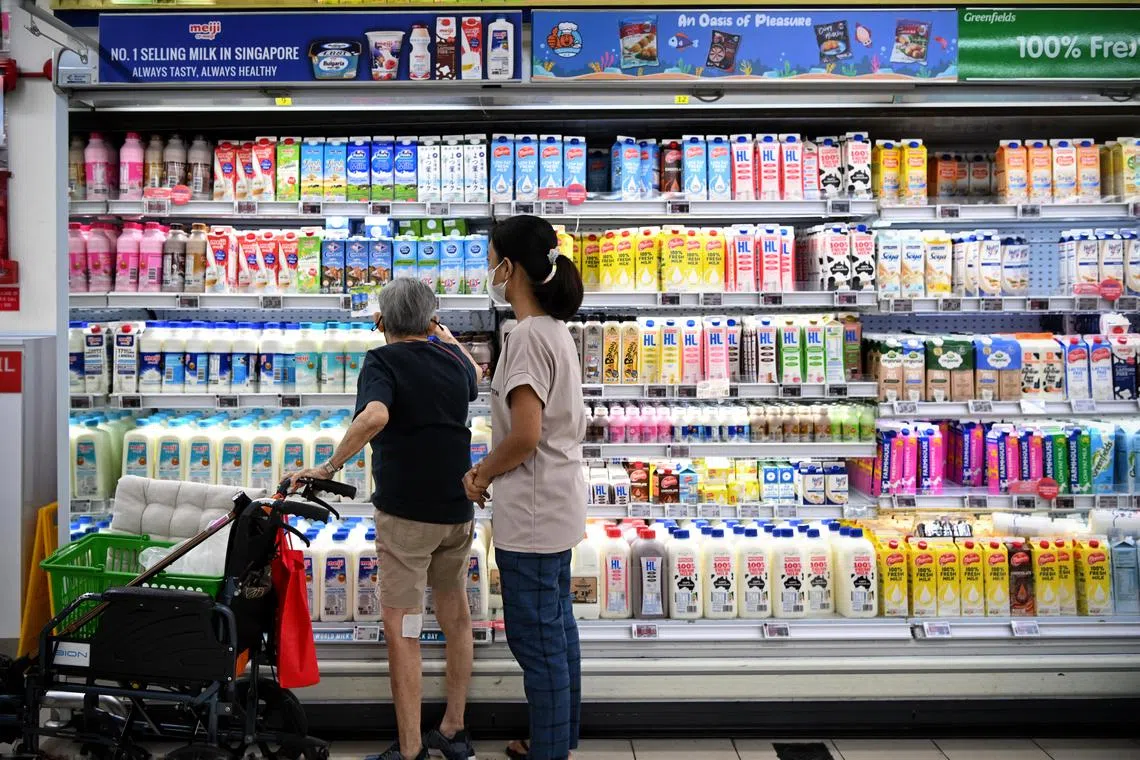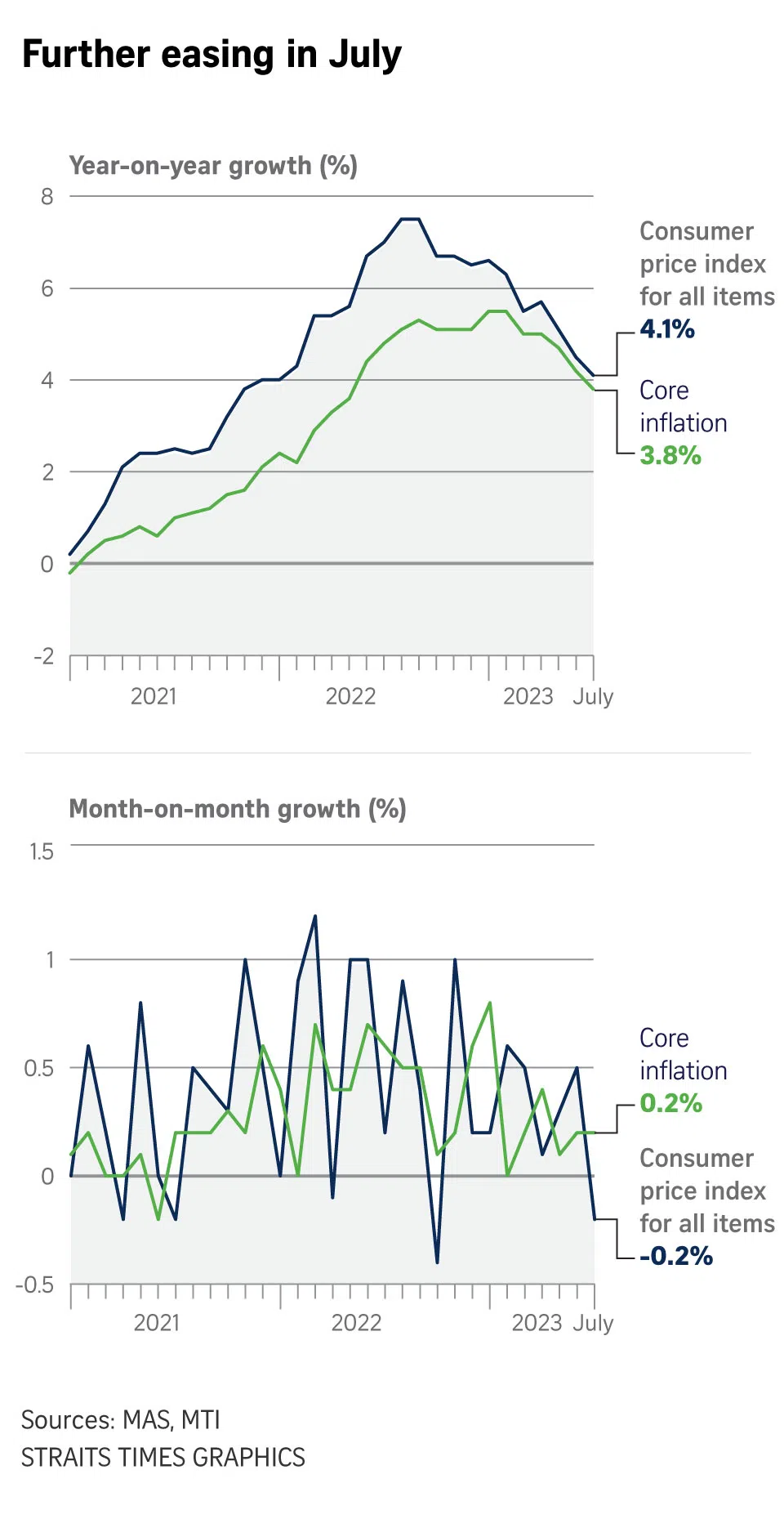Singapore core inflation drops for third straight month to 3.8%, with more easing expected
Sign up now: Get ST's newsletters delivered to your inbox

July saw a smaller hike in food prices and a fall in the costs of electricity and gas.
PHOTO: ST FILE
SINGAPORE - Consumer prices in Singapore rose at a slower pace for a third consecutive month on the back of a smaller hike in food prices and a fall in the costs of electricity and gas, with economists expecting more easing in the months ahead.
Core inflation, which excludes private transport and accommodation costs to better reflect the expenses of Singapore households, dropped to 3.8 per cent year on year in July, from 4.2 per cent in June.
Headline inflation, or the overall consumer price index (CPI), also eased to 4.1 per cent from 4.5 per cent in June, led partly by lower private transport inflation.
Both core and headline inflation figures matched the forecasts of analysts in a Reuters poll.
DBS Bank economist Chua Han Teng said Singapore’s core inflation continued its downtrend since February 2023’s peak to its lowest level since mid-2022, while headline inflation hit the lowest rate since early 2022. “While inflation is still high versus the pre-pandemic average, at least price pressures are moderating and inflation is less acute than last year, to consumers’ relief,” he said.
On a month-on-month basis, which represents how much momentum there still is in prices, core consumer prices edged up 0.2 per cent in July, largely due to the rise in the cost of services and food. This rise is because the more expensive sugar, preserves, confectionery and fruits offset cheaper meat, fish, seafood, oils and fats, said Ms Selena Ling, OCBC Bank’s chief economist.
Overall consumer prices dipped 0.2 per cent from June on the back of lower accommodation and private transport costs.
The decline in accommodation costs was mainly due to the rebates for service and conservancy charges for those living in Housing Board flats in July, the Monetary Authority of Singapore (MAS) and Ministry of Trade and Industry (MTI) said in its report on Wednesday.
Electricity and gas inflation recorded the steepest decline in July, with their prices falling 1.6 per cent because of lower tariffs. They had risen 3.1 per cent in June.
Led by a slower rise in car prices, private transport inflation came in at 4.8 per cent in July, lower than the 5.8 per cent in June.
Inflation for food and retail was also lower, dipping to 5.3 per cent and 2.6 per cent, respectively.
Services inflation remained unchanged at 3.6 per cent in July, while accommodation inflation bucked the trend to edge up to 4.6 per cent due to an increase in service and conservancy charges from a year ago.
MAS and MTI maintained their forecasts for overall inflation for 2023 at between 4.5 per cent and 5.5 per cent, while core inflation was pegged at between 3.5 per cent and 4.5 per cent.

RHB Bank Singapore senior economist Barnabas Gan expects inflation momentum to ease further in the second half of the year, although there is the possibility of sticky prices in the third quarter.
“We keep Singapore’s headline inflation forecast at 4 per cent year on year in 2023, against the official revised forecast of 4.5 per cent to 5.5 per cent.”
OCBC’s Ms Ling expects headline CPI to moderate further on a year-on-year basis to 3.5 per cent in the third quarter and 2.7 per cent in the fourth, while core CPI is expected to go on a similar trajectory to 3.4 per cent in the third quarter and 2.8 per cent in the fourth.
“This would bring our full-year 2023 headline and core CPI forecasts to 4.3 per cent and 4 per cent respectively,” she said.



